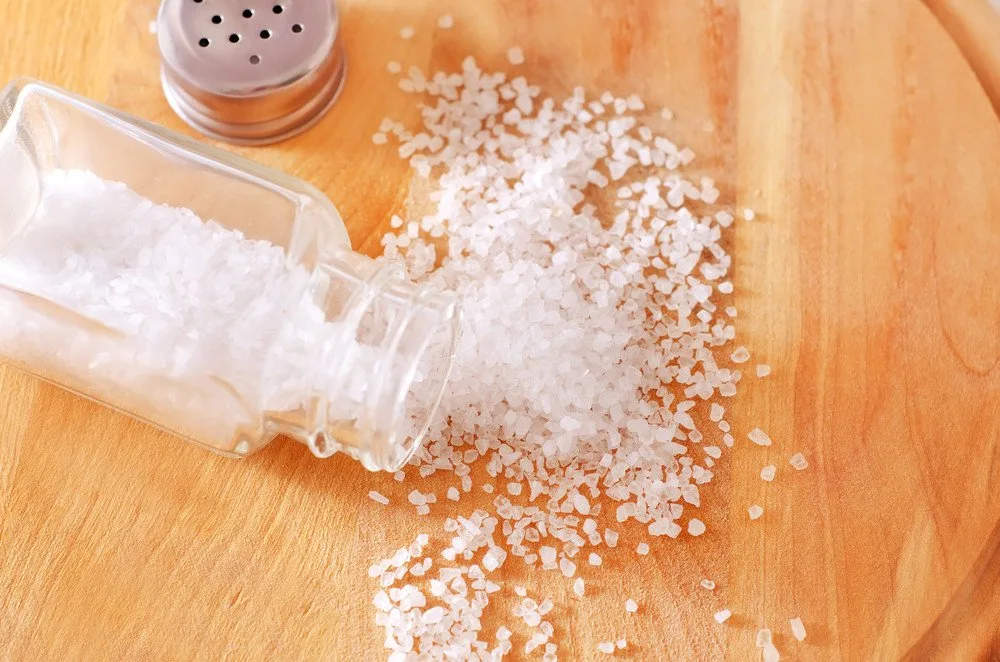We all love a salty snack or even a meal now and then, but excessive amounts of salt in your diet can be detrimental to your health. A new study suggests it may be time to consider using salt substitutes.
Too salty for a healthy heart
According to a new study, swapping out your table salts for salt substitutes may help to reduce the risk of cardiovascular disease and early death.
Per the findings of the study, the use of salt substitutes can result in a lower occurrence of cardiovascular disease as well as a reduced risk of death from any cause for up to 10 years.
If you want to cut back on your salt intake, you may be interested in familiarizing yourself with salt substitutes. These common low-sodium salts are made by replacing some or all of the sodium content with potassium, magnesium, or another mineral. The best part about salt substitutes is that they offer a similar taste while reducing an excessive amount of salt intake which, in turn, decreases the risk for cardiovascular disease.
Should we bring salt substitutes to the dinner table?
Despite the study’s findings, it should be noted that the data analyzed was taken from studies that mostly took place in China. As such, one must consider the differences regarding how food is consumed and prepared between the East and the West.
Salt substitution may reduce all-cause or cardiovascular mortality, but the evidence for reducing cardiovascular events and not increasing serious adverse events is uncertain, particularly for a Western population. The certainty of evidence is higher among populations at higher cardiovascular risk and/or following a Chinese diet. This is an extract taken from the study.
Also, as mentioned, salt substitutes replace some or all of the sodium with either potassium, magnesium, or a different mineral. This raises the question of how some individuals may react to consuming too much potassium found in salt substitutes. For instance, someone with kidney problems may need to steer clear of too much potassium, as well as a person taking medication for high blood pressure and congestive heart failure.
Reducing your sodium intake
While salt substitutes can help you manage your sodium intake, there are a few other methods that you can implement.
Some easy and simple ways to reduce your sodium consumption include:
- Focus on eating more fresh foods such as fruits, vegetables, fresh meat, fresh chicken, and fresh fish.
- Buy plain whole-grain rice and pasta instead of products that have added seasoning.
- Rather eat at home when you can as restaurant foods are often high in sodium.
- Replace salt when cooking with herbs, spices, and citrus zest or juice.
- Avoid using condiments where you can.
- Look out for reduced or low-sodium versions of prepared foods.
- Cut back on high-sodium foods like bread, pizza, cold cuts bacon, cheese, soups, and fast foods.
The label lingo
In avoiding high-sodium foods, it is important to get into the habit of reading nutrition labels. These labels will list the amount of sodium in each serving, as well as whether the ingredients include salt or sodium, such as:
- Monosodium glutamate (MSG).
- Baking soda, also called sodium bicarbonate.
- Baking powder.
- Disodium phosphate.
- Sodium alginate.
- Sodium citrate.
- Sodium nitrite.
It is advised to avoid more than 200 mg of sodium per serving.
The bottom line
As much as we may enjoy the taste of salt in our foods, it is important to ensure that our salty cravings are not threatening our health, and if so, we need to do our part to curb them.
References
Greenwood, H., Barnes, K., Clark, J., Ball, L. and Loai Albarqouni (2024). Long-Term Effect of Salt Substitution for Cardiovascular Outcomes. Annals of internal medicine. doi:https://doi.org/10.7326/m23-2626.
https://www.nhlbi.nih.gov/news/2023/halt-salt-5-ways-cut-down-sodium-and-improve-your-heart-health



![women [longevity live]](https://longevitylive.com/wp-content/uploads/2020/01/photo-of-women-walking-down-the-street-1116984-100x100.jpg)










